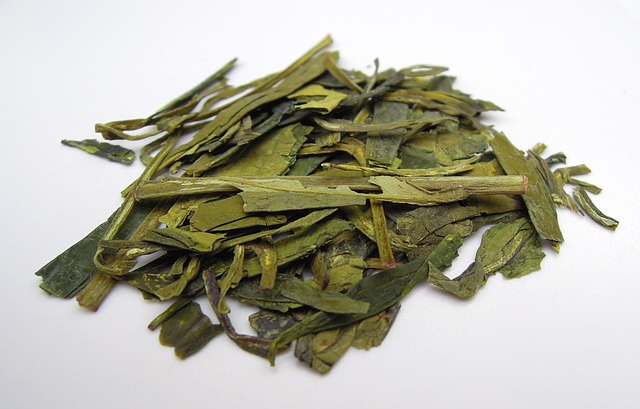Kratom has been proven effective to effectively ease pain, anxiety, to increase energy levels and to help people get off opioids. An estimate of 5 million people are using kratom in the US every day and many of them count on kratom to be able to conduct a normal and productive life. But although kratom is a safe plant to use, when used well, there are cases when its use is not recommended. So, if you ever asked yourself when to quit kratom, keep reading below to discover some reasons to stop using the plant.
What to Expect When Using Kratom?
Kratom is a powerful herb with many properties and effects. Typically, people use kratom to manage chronic pain and anxiety. But the plant has many other properties. As you already know, there are three main kratom types, red, white and green. Although all kratom varieties share common properties, each of them has its own set of effects. Let’s summarize them below:
- Red kratom is used to achieve relaxation and calm. It also helps relieve chronic pain and aid sleep. Additionally, its opioid-like effects can help people who seek to get off opioids.
- White kratom is energizing and stimulating and it’s mainly used by individuals who want to get an extra boost of stamina to perform their daily tasks.
- Green kratom is a more balanced strain and it’s used for many purposes, including pain relief, anxiety relief and to ease social anxiety.
If you are using kratom for one of the above purposes and you are not getting the results that you are looking for, you might be using the wrong type or simply need to quit kratom for a while.
Kratom Side Effects
Before deciding if you should quit kratom, you should understand that, like many other plants, kratom can provoke some side effects that might be unpleasant to some individuals. So, first of all, you must know that experiencing some of the following side effects is normal:
- nausea
- dizziness
- constipation
- dry mouth
- headaches
- libido loss
However, the above side effects are many times related to the strain or the dosage. So, switching strains or lowering the dose can help make them go away.
On the other hand, some side effects may worsen if you mix kratom with other substances, so it is recommended to use it with caution and never mix it with prescription drugs, over-the-counter medicines or potentiators.
When to Quit Kratom?
So, now that you know what the most common side effects are, and that feeling some of them is normal, it’s time to understand when to quit kratom. As we said, kratom is fairly safe to use when you do it properly. Obviously, if you take too high doses or mix it with dangerous substances may result in serious consequences. So, use your common sense and use it wisely.
So, when to quit kratom?
Side effects are too bad
If you are using kratom, especially if you are new to it, experiencing some unpleasant side effects should be expected. This doesn’t necessarily mean that you should quit kratom completely. Before deciding if you should quit, make sure that you are using the right type for your needs, switch strains if necessary and lower your dose. If your side effects are too bad even after taking those measures, maybe kratom is not the right herb for you.
Pregnancy and breastfeeding
Although there is not research about kratom during pregnancy and breastfeeding, it is safe to say that you should quit kratom when you are pregnant or breastfeeding. In fact, many drugs and medicines should not be used during this period.
The reason why you shouldn’t use kratom during pregnancy or breastfeeding is that everything that you ingest will also enter the baby’s system. Obviously, whatever your kratom dose is, it will be too high for your baby.
Kratom is not working for you
Kratom has many properties and effects, and it can be used for the following purposes:
- alleviate pain
- ease anxiety and stress
- increase energy
- combat social anxiety
- improve focus and concentration
- relieve opioid withdrawal
- combat insomnia
If used properly, kratom is an effective herb. But there might be circumstances when kratom is not working. If this your case, you might be using the wrong kratom variety or not using the right dose. So, before quitting kratom, try switching strains and adjusting your dose before quitting kratom completely.
Increased tolerance levels
Like most substances, if you are using kratom for a long period of time, you might experience increased tolerance levels. This might be caused by using too high doses, that’s why it is so important to determine the right dose and don’t go above it, this way you’ll prevent developing tolerance.
If you have already noticed that your tolerance level is too high, consider switching strains. If this doesn’t work, quit kratom for a while, to help lower your kratom tolerance. After a few weeks you’ll be able to experience kratom’s effects again, but make sure to use the minimum dose necessary to prevent developing tolerance again.
Kratom is prohibited where you live
Although this might seem an obvious reason, for some people, it’s not, that’s why we wanted to include this reason in this list. If there’s a good reason where you should ask yourself when to quit kratom, this is it. Kratom remains legal at a federal level in the US, but there are states and regions where the plant is prohibited. So, if you live in one of the areas were kratom has been banned, you should stay away from the plant.
Using kratom in places where it’s not legal may contribute to its bad reputation. So, if we want kratom to remain accessible for everyone, it’s crucial that you follow the laws.

Best Kratom Alternatives
What to do when kratom doesn’t work? Although many times using a different variety or adjusting your dose will remedy this situation, there are cases where this won’t work. In this case, there are alternatives that you can use and that can be very effective. Some of the most popular are:
- Akuamma seeds: an African herb with pain-relieving and antianxiety effects.
- Mitragyna hirsuta: probably kratom’s closest relative, it poses all of kratom’s properties, however, they tend to be milder.
- Kava: this South Pacific herb is legal in most places and can help combat anxiety and stress.
- Kanna: another African herb that provides stimulation, mood elevation, and anxiety relief. At the same time, it has muscle relaxation properties, so it can alleviate muscle pain.


